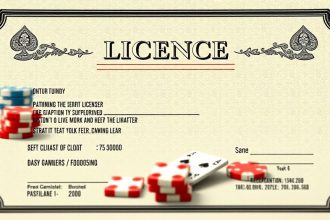eCOGRA and iTech Labs, established in 2003 and 2004, respectively, are leading independent auditors for casino random number generators (RNGs). They have certified over 12,000 games for over a thousand operators. Both are ISO/IEC 17025 certified and recognized by regulators such as the UK Gambling Commission, the Malta Gaming Authority, and iGaming Ontario. Their certifications promise fair results, accurate payouts, and responsible practices across slots, table games, and live dealer feeds. Here’s a breakdown of their RNG testing procedures, statistical benchmarks, and the latest updates in slot approval criteria.
How RNGs Are Evaluated
These companies follow a detailed testing process. It starts with reviewing the source code – often written in languages like C++, JavaScript, or Rust – of RNGs like Mersenne Twister or PCG, looking for predictable patterns or vulnerabilities. RNG seeds must draw at least 256 bits of entropy from hardware sources, such as CPU fluctuations or atmospheric noise. They then run over a billion simulated spins using tools like dieharder and ENT. iTech Labs adds ten million real-play spins for more thorough analysis.
Statistical tests confirm randomness: Chi-Squared tests require a p-value above 0.01 for even distribution, Kolmogorov-Smirnov tests compare distribution curves, and the Runs Test detects sequential patterns. Link audits verify if game outcomes – like when reels stop or cards are dealt – match the programmed payout schemes. Live dealer streams use OCR to capture physical data, which is cross-referenced against the RNG output in hybrid setups. Audits occur before launch and then monthly and yearly, with complete re-evaluations annually.
Payout and Volatility Checks
Auditors verify the Return to Player (RTP) over a million actual game rounds, allowing a variance of plus or minus 0.5%. For example, a 96% RTP game must fall between 95.5% and 96.5%. Hit rates are checked against expected frequencies, like a bonus triggering approximately once every hundred spins. Volatility is measured by distribution, requiring ten million spins to accurately gauge, particularly for high-volatility slots. Progressive jackpots undergo payout audits, such as verifying the 5.3% contribution to Mega Moolah, along with reset validations. Violations result in revoked certifications and public announcements – five operators were penalized in 2024.
What’s New in 2025 Audits
Both auditors upgraded their testing tools. Live RTP monitoring now flags deviations over 1% within 100,000 spins through real-time dashboards. Smart algorithms identify suspicious patterns, like frequent bonus triggers. Mobile performance tests involve conducting 100,000 spins on low-bandwidth connections. Quantum RNG assessments are being used in one in twenty new slots, using IBM Q for true randomness. Provably fair systems for crypto games now use SHA-3 hashes for player verification on Etherscan. iTech Labs is recognised for its mobile testing, while eCOGRA excels in jackpot monitoring.
Spotlight on 2025 Slot Certifications
- Gates of Olympus 1000 (Pragmatic Play): 96.50% RTP, Chi-Squared p=0.82, iTech Labs certified (Feb 2025).
- Money Train 4 (Relax Gaming): 96.50% RTP, 150,000x max payout, eCOGRA certified (Jan 2025).
- Fury Dragon (Betsoft): 96.07% RTP, Hold & Win feature certified, certified by both (Jan 2025).
Conclusion
The eCOGRA and iTech Labs seals are displayed at the bottom of casino websites with links to verify their certifications. This year, nearly all casinos licensed by the MGA or UKGC (98%) display one of these seals. Revocations are rare but are publicly listed on the auditors’ websites. eCOGRA and iTech Labs help in keeping online slot games fair by using statistical tests.








